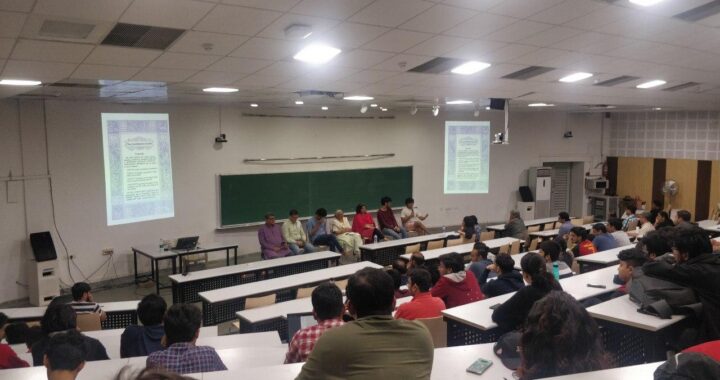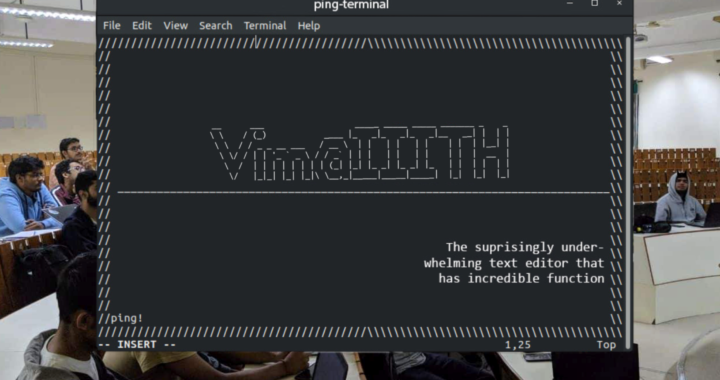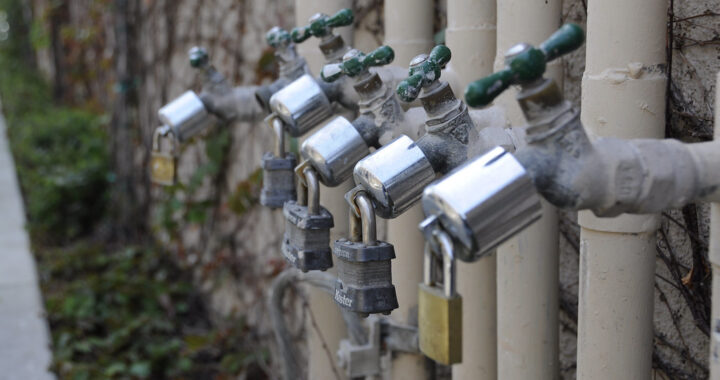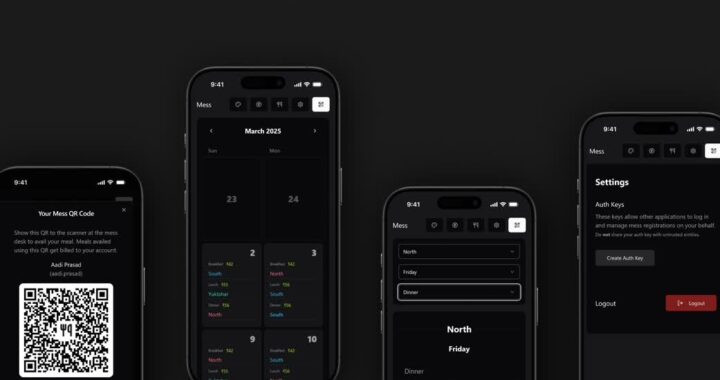Gender Neutral Hostels: Continuing the debate

This is a part of The Newsletter dated 28th March, 2019
Zubair Abid
The debate on gender neutral hostels that first started a year ago – involving heated Facebook debates, multiple polls to gauge interest, and open sessions to get varied opinions on the matter – seemed to have disappeared after a door-to-door survey last semester, to collect students’ opinions on the issue (results available here). Sarigama Yerra (UG4) and Vanalata Bulusu (UG4) reopened the issue as part of the Gender Sensitization Workshop with an open to all debate.
It started of with the proponents of Gender Neutral Hostels, Sarigama and Vanalata, clarifying their stance and goals. The definition of “gender neutral” being used here:
“Gender neutrality … describes the idea that policies, language, and other social institutions (social structures , gender roles, or gender identity) should avoid distinguishing roles according to people’s sex or gender, in order to avoid discrimination arising from the impression that there are social roles for which one gender is more suited than another.”
Points that were made for gender neutrality:
Why gender neutral living spaces?
Our college has been promoting gender neutrality for a long time, but there are still many who are still uncomfortable with even interacting with people of other genders. A lot of it arises out of misunderstanding. Living with someone is very different from meeting them outside and getting back to your rooms, you get to know others properly by sharing living spaces.
Also, convenience of friendship – having friends of another gender is very different from having friends of the same gender: in the former, there’s more effort involved in making and continuing friendships.
What is the movement trying to address?
The movement has, as of now, two main points:
1. To establish opt-in gender-neutral blocks for people comfortable with the idea, and for non-binary people. The Institute acknowledges the existence of gender as a spectrum, but hostel choices do not reflect that, and this move could correct that.
2. For now at least, have cross-entry across all hostels, time-limited if people have concerns.
The larger aim is to have a space where everyone is comfortable with who they are.
Are there any co-ed hostels/shared living spaces in other colleges?
Yes. IIT Gandhinagar, NID, NIFT, TIFR, and Ashoka are all examples of colleges in India with shared living spaces. In fact, most colleges in the US have shared hostels.
Points raised against the idea:
Hostels are currently a safe space for people of one gender. Cross entry gets rid of that.
In private interactions people are usually more comfortable, and tend to say stuff that they would not otherwise in public.
Some people may be uncomfortable living in shared spaces.
This was a common response, to which the organisers pointed out that tackling this gendered bias was part of their goals. Nevertheless, they said they do not propose that all hostels instantly become co-ed, as some may be against the idea and they did not want to “force their opinion on anyone”.
Forcing people to accept gender neutral hostels or cross entry is forcing of one’s opinion on others.
Some complained that the status quo should not be disturbed, and changing cross entry or hostel rules against the will of a group of people, minority or otherwise, was forcing opinions on others.
Students may be okay with cross entry, but parents may not.
There may be conflicts between parental and student opinion, and in that case who should the college listen to?
Miscellaneous points brought up:
There should be a trial (for cross entry) for a day, or a week.
A week-long trial run of cross entry would allow organisers to check the response. Benefits:
- A proper plan can be implemented based on real issues faced in the trial run
- It gives an option to collect real responses, honest opinions, not just hypothetical ones
Keep the first year same. Introduce the plan from second year onwards.
The idea is that conservative mindsets will have the year to accept/get used to it, gain maturity, and that older years already got over it ages ago.
Others suggested trying it from fourth year onwards.
Issues concerning sex and safety.
If cross entry is implemented, issues on sex and safety arise.
A solution proposed involved
- A register for any cross entry across hostels. Have both parties involved sign the register, for increased accountability.
Some people brought up that registers aren’t foolproof, although others countered that nothing is and only the best possible strategy could be attempted at. - Time limits within which cross-entry was disallowed, such as initially implemented in Ashoka University. Some people expressed their concern at this, arguing that the idea behind it was fundamentally flawed.
Compare with the approach taken by other indian colleges
We should see why gender neutral hostels work in other Indian colleges, and if they would work for ours too.
In case of any incident, would the college choose to keep all actions internal or make it a legal issue with police/law/etc?
The author thanks Shelly Jain and Athreya C for their valuable input.

 Covering the CAA-NRC Panel Discussion
Covering the CAA-NRC Panel Discussion  Vim Club has its first session !
Vim Club has its first session !  Hyderabad’s Water Shortage
Hyderabad’s Water Shortage  Interhouse Cricket Matches Underway
Interhouse Cricket Matches Underway  IIIT’s Area 51 Raid
IIIT’s Area 51 Raid  Megathon 2019
Megathon 2019  Mama, Put My GPTs in the Ground
Mama, Put My GPTs in the Ground  Have you tried turning the mess off and on again?
Have you tried turning the mess off and on again?  Log Kya Kahenge?
Log Kya Kahenge?  Can you hear the music?
Can you hear the music?
2 thoughts on “Gender Neutral Hostels: Continuing the debate”
Comments are closed.